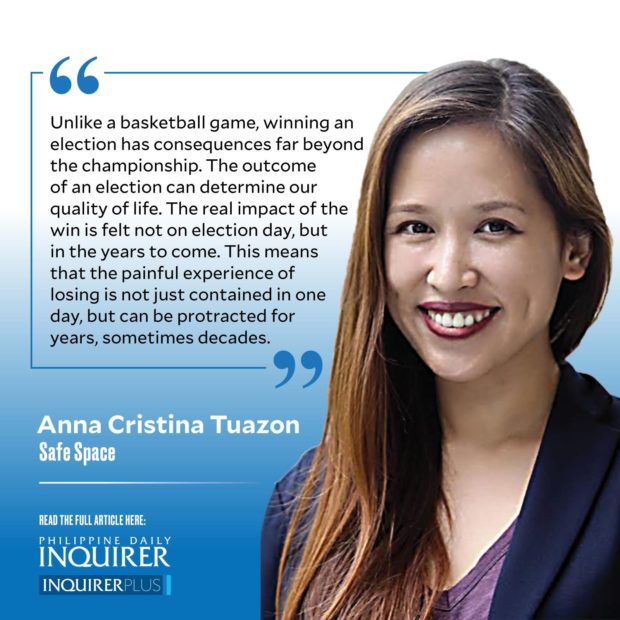Healing and moving on

In a recent interview, I was asked as to how we can bridge the divide among people who held different political views. Calls for “healing” and “moving on” have been bandied about, usually by people who want someone ELSE to heal and move on. Ironically, actual efforts of people to heal through support groups have been mocked and even been accused of blocking the process of moving on.
What does healing look like after an election? Who bears the burden of healing the nation?
Healing is a tricky thing. We certainly don’t get healed simply because someone told us to. (If this were the case, my job would’ve been a whole lot easier.) Healing requires time and a safe space. Not everyone heals in the same way. Some heal by reaching out to others and asking for social support. Others heal by spending quiet time with themselves. Some heal by expressing anger and upset. Some heal through tears. Some heal through prayers and turning to a higher power. Others heal through focusing on one concrete task at a time and not looking too far into the future. There are those who actually heal by leaning into their worst fears and preparing for it. Others, still, heal by looking at the bright side and focusing on the optimistic possibilities of the future.
To rush someone’s healing is to get in the way of healing. To dismiss and invalidate one’s pain is to reopen wounds, complicating the healing process. To deny people of a safe space to openly talk about their experience and emotions is to guarantee that people remain fearful for the future. You cannot mock or bully someone into healing or moving on. You cannot blame someone for their own challenges in healing. If you genuinely want them to heal, you must support their process.
In the context of a family divided by politics, we must understand the distribution of responsibility when it comes to healing. A win-or-lose situation, such as in competitive sports like basketball, can bring out the combative in us, especially when our team pride is challenged. For us to win, others must lose. And so, we naturally set aside our commonalities—only for the moment—so we can focus on achieving that win. A competitive election can spur a lack of empathy for the opposite side. In our passion to promote our candidates, we run the risk of denigrating our family members’ values and beliefs simply because they don’t agree with us.
Unlike a basketball game, however, winning an election has consequences far beyond the championship. The outcome of an election can determine our quality of life. The real impact of the win is felt not on election day, but in the years to come. This means that the painful experience of losing is not just contained in one day, but can be protracted for years, sometimes decades.
There are people that feel disappointed about changes that won’t happen. Some are downright fearful of what’s to come. If the family is still in a win-lose mindset, it won’t allow for a recovery of empathy toward each other. In a politically divided situation, members who voted for the winning candidates must extend empathy for their loved ones who are in pain. When we extend empathy to another, then we are no longer the monsters they think us to be. We must show them that we care for their well-being.
If we genuinely believe that good leaders have won, we must soothe and allay their fears. We should assure them that we took our responsibility as citizens seriously — that it wasn’t simply about winning or losing. Winning in an election should not be an excuse for mocking or taunting those who voted differently.
As family members, we should help them process their election experience. Regardless of political affiliation, we should applaud their passion for our country and their active participation as citizens. We should encourage their willingness to express and debate political views as an extension of being a good citizen. If our family members request for space or distance and express feeling betrayed by your vote, allow them such space. Be ready and willing to calmly explain your vote so that it becomes more understandable to them once they are ready to engage with you.
To apply the famous quote from “Spider-Man”: with winning comes great responsibility. Since your vote prevailed in choosing what life will be like for the next six years, you must be willing to take on the responsibility of safeguarding your family’s well-being.
Winning doesn’t make us right — it just makes us responsible.




















